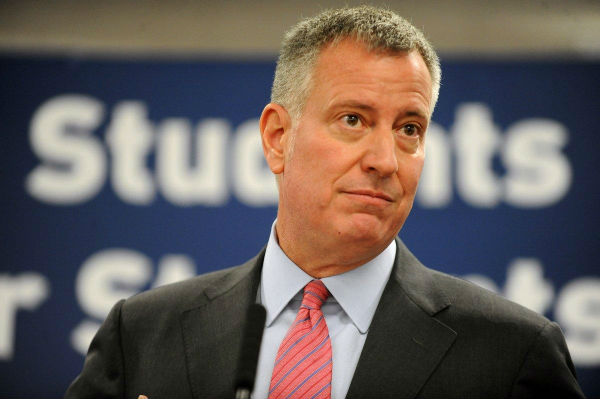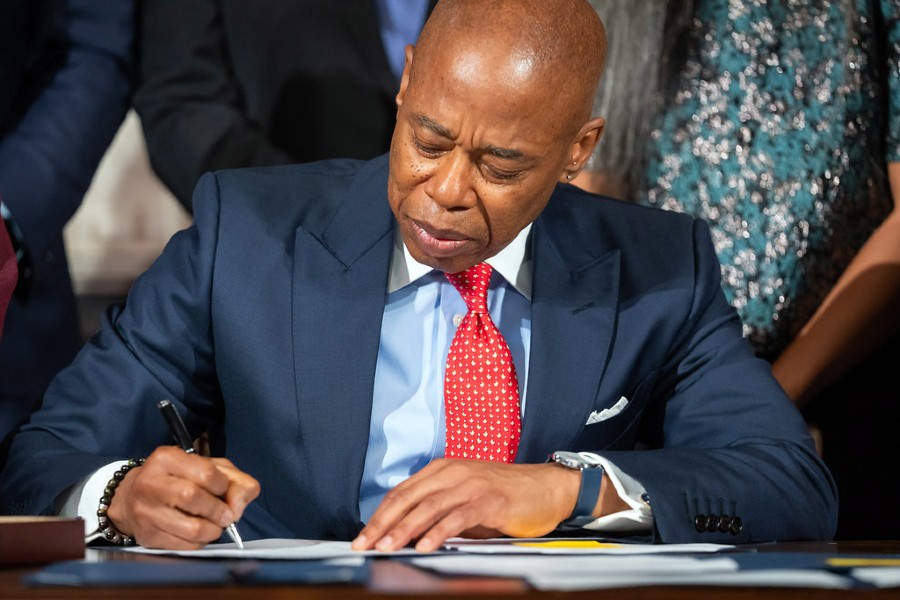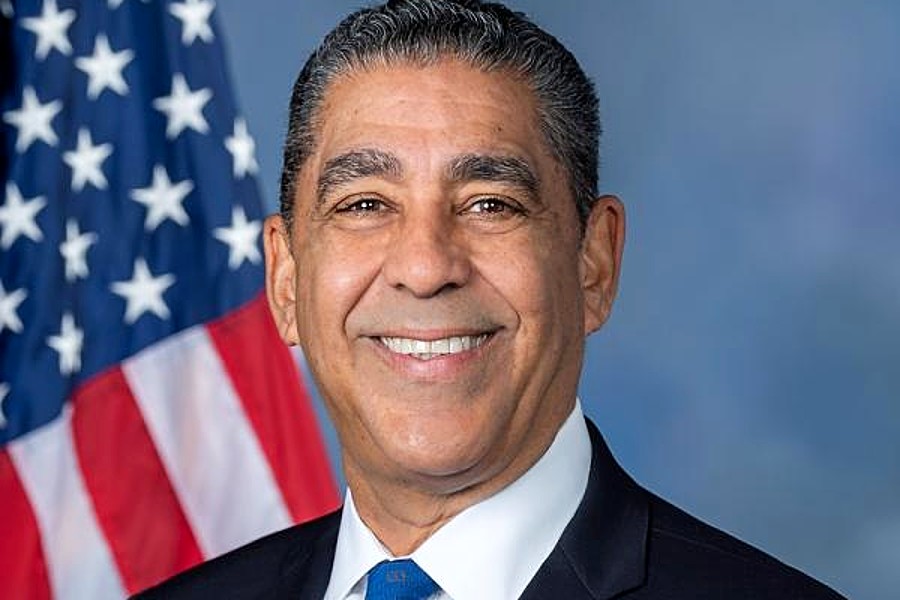 Today, Mayor de Blasio and The Mayor’s Office of Criminal Justice (MOCJ) announced the one year anniversary of the City’s implementation of historic “Raise the Age” legislation. The legislation stops 16 and 17-year old children from being automatically prosecuted as adults and builds upon the de Blasio Administration’s work to transform the juvenile justice system in New York City.
Today, Mayor de Blasio and The Mayor’s Office of Criminal Justice (MOCJ) announced the one year anniversary of the City’s implementation of historic “Raise the Age” legislation. The legislation stops 16 and 17-year old children from being automatically prosecuted as adults and builds upon the de Blasio Administration’s work to transform the juvenile justice system in New York City.
As of today, 17-year-olds arrested on misdemeanors will join their 16-year-old counterparts in the juvenile justice system while those arrested on felonies will be processed through the new Youth Part, removing the last group of adolescents from being automatically subjected to the full adult criminal justice system.
Following broader justice system trends, Raise the Age comes amid an already rapidly shrinking justice system. Between 2013 and September 2018, arrests of 16- and 17-year-olds decreased by 60 percent and the number of youth in detention fell by 64 percent. Building on this success, the first nine months under the new law saw misdemeanor arrests of 16-year-olds decline 61 percent compared to the same time period from October 2017 to June 2018.
“Kids should be treated like kids,” said Mayor de Blasio. “With Raise the Age fully in effect, we’re finally able to do just that – marking another monumental step forward in our ongoing efforts to create a fairer and more humane criminal justice system for all New Yorkers.”
“New York City’s foundational shift that’s seen crime continue to drop, even as incarceration rates have continued to fall, has extended to all parts of the criminal justice system. That includes the juvenile justice system, which now recognizes all children as such. We remain focused on continuing this work with our justice system partners as we push to create the most effective and fairest justice system possible,” said Elizabeth Glazer, Director of the Mayor’s Office of Criminal Justice.
New York City’s successful implementation of Raise the Age, including the development of a new court system, is due to the continued hard work of numerous stakeholders. The Mayor’s Office convened the Raise the Age Implementation Coordination Working Group to ensure effective preparation and coordination among the courts, District Attorneys, public defenders, and City agencies.
Children charged with misdemeanors now have their cases handled through Family Court rather than adult court. In Family Court, children have more opportunities for programming and services that appropriately address their needs and allow them to avoid unnecessary justice system records. For felony arraignments, a new Youth Part was created in the state Supreme Court. Judges there decide whether to remove the case to Family Court or continue to hear them in the Youth Part. During the first year with just 16-year-olds, an overwhelming majority—nearly 80 percent—arraigned in Youth Part were removed to Family Court
Raise the Age aimed to do more than simply change how adolescents were being handled by the courts. It also sought to provide age-appropriate services and facilities that would create an environment focused on wellbeing for young people. As of October 1 of last year, all 16- and 17-year-olds have been moved off of Rikers Island and are housed in dedicated juvenile facilities with developmentally appropriate services and opportunities that support their health and success.
The City remains committed to lightening the touch of enforcement and improving programming and services to better serve young people as they navigate their way to adulthood. The Working Group is comprised of the Administration for Children’s Services, Department of Correction, Department of Education, Department of Probation, NYPD, New York City Law Department, Office of Court Administration, Legal Aid Society, Bronx Defenders, Brooklyn Defenders and the District Attorney’s Offices in all five boroughs. The Working Group continues to meet regularly to monitor progress, discuss ideas and analyze trends.
“After more than a century of treating 16- and 17-year-olds as adults in the criminal justice system, the passage of Raise the Age created an entirely new system for older adolescents,” said ACS Commissioner David A. Hansell. “Under Raise the Age, older adolescents in New York City have better access to age-appropriate services and programs designed to promote rehabilitation, positive behavior change, and successful re-entry into the community all while preserving the safety and security of youth and staff and protecting public safety. We look forward to building on the successful work that has already been done to transform the juvenile justice system in New York City.”
“We are pleased to have worked with our community of impacted stakeholders to successfully implement the first phase of Raise the Age in NYC. We are heartened by the fact that the overwhelming majority of young people are having their cases addressed in the family justice system as intended by the Raise the Age law,” said Hon. Edwina G. Mendelson, Deputy Chief Administrative Judge for Justice Initiatives.
“Raise the Age has proven to be a significant step that brings us closer to a system that embodies justice and common sense. Detention and incarceration harm all people, but it leaves particularly damaging impacts on the lives of our children. We must remain committed to addressing the underlying causes of crime and anti-social behavior, and support solutions that confront these deep issues at the source. We look forward to working with our partners citywide to continue to affirm the humanity of all people, creating a justice system based on redemption and love, while upholding the goal of a safe society for all,” said Rev. Wendy Calderón Payne, Executive Director, BronxConnect.
“One of the most promising signs for the future of New York City is that the numbers of young people who are arrested and who are locked up are plummeting. This progress is good for the youth of our city, it gives them a chance at a brighter future, and it brings us closer to the day when problems are solved in and by the community, rather than compounded by needless incarceration,” said Tyler Nims, Executive Director, Independent Commission on NYC Criminal Justice and Incarceration Reform.
“New York’s implementation of the Raise the Age law and its overall youth justice reforms show that we can have fewer youth incarcerated while still experiencing record declines in youth arrests. In many respects, New York’s approach to youth justice and its simultaneous sharp drops in both youth incarceration and youth crime, call into question the need for youth prisons that dominate so much of youth justice landscape throughout the rest of the country,” said Vincent Schiraldi, former Commissioner of New York City Probation and co-director of the Columbia University Justice Lab.
“Raise the Age has helped New York City continue to shrink its youth justice system and serve more youth through the family courts, instead of the adult criminal justice system. This reform is good policy for our young people, communities and public safety,” said Julia Davis, Director of Youth Justice and Child Welfare, Children’s Defense Fund-New York.
“I will never forget the feeling of arriving to Rikers Island at the age of 16. It’s an experience no one should have, especially not a child. In implementing RTA, New York City and State took a long-overdue step toward ending the criminalization of youth. As arrests and detention rates decline, we must be clear about what got us here, and what we’ll need more of if we want to see continued progress–grassroots advocates demanding that we invest in our young people and provide urgent relief to those currently justice-involved,” said Tamika Graham, JustLeadershipUSA.
“The significant decrease in the number of 16- and 17-year-old New York City youth arrested for misdemeanors indicates a promising trend citywide. We look forward to working with the city to build on this momentum and the city’s recent school discipline and policing reform measures to move towards ending all student arrests and summons for misdemeanors and violations in school, which disproportionately impact Black and Latinx youth,” said Dawn Yuster, Director, School Justice Project at Advocates for Children of New York.
Become a Harlem Insider!
By submitting this form, you are consenting to receive marketing emails from: . You can revoke your consent to receive emails at any time by using the SafeUnsubscribe® link, found at the bottom of every email. Emails are serviced by Constant Contact








